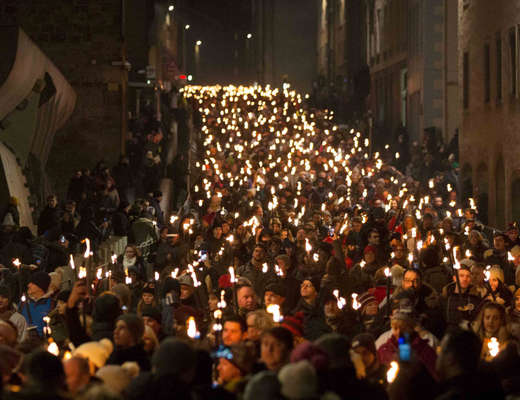
Hogmanay [hog-muh-ney] ExamplesWord Origin noun Scot.
- the eve of New Year’s Day.
- (lowercase) a gift given on Hogmanay.
Origin of Hogmanay First recorded in 1670–80; origin uncertain Examples from the Web for hogmanay Historical Examples of hogmanay
Hogmanay is the popular Scotch name for the last day of the year.
Sir James George Frazer
Only two Jocks had got out and kept their Hogmanay elsewhere and quite elsehow—a creditably small proportion out of forty men.
Rose Macaulay
When the Provost gave his grand spree on Hogmanay there was never an invitation for the Gourlay youngsters.
The House with the Green Shutters
George Douglas Brown
On the eve of “Hogmanay,” as it is called, everybody stays up to welcome the New Year, with great jollification.
Blanche McManus
Each child gets a quadrant of oat-cake (sometimes with cheese), and this is called the “Hogmanay.”
Christmas in Ritual and Tradition, Christian and Pagan
Clement A. Miles
British Dictionary definitions for hogmanay Hogmanay noun
- (sometimes not capital)
- New Year’s Eve in Scotland
- (as modifier)a Hogmanay party See also first-foot
Word Origin for Hogmanay C17: Scottish and Northern English, perhaps from Norman French hoguinane, from Old French aguillanneuf the last day of the year; also, a New Year’s eve gift
 Liberal Dictionary English Dictionary
Liberal Dictionary English Dictionary